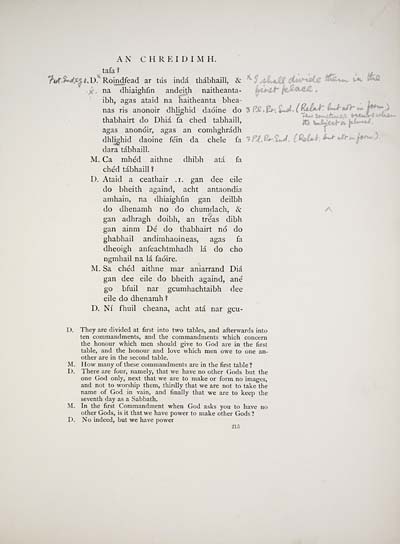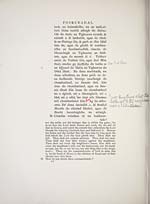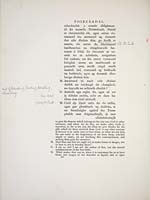Download files
Complete book:
Individual page:
Thumbnail gallery: Grid view | List view

AN C H R E I D I iM H.
tafa?
'^t^S^^ L D.^ Roindfead ar tus indd thabhaill, &
. na dhiaighfin andeith naitheanta-
ibh, agas ataid na haitheanta bhea- / s a ■ L^
nas ris anonoir dWighid dadine do ^ '^-C-l^. S^'l !^^*^ ^*^'^ Z*^-^
thabhairt do Dhià fa ched tabhaill,
agas anonoir, agas an comhghrddli
dhlighid daoine fein da chele fa
dara tabhaill.
M. Ca mhed aithne dhibh ata fa
ched tabhaill ?
D. Ataid a ceathair .i. gan dee eile
do bheith againd, acht antaondia
amhain, na dhiaighfin gan deilbh
do dhenamh no do chumdach, &
gan adhragh doibh, an tre'as dibh
gan ainm De do thabhairt no do
ghabhail andimhaoineas, agas fa
dheoigh anfeachtnihadh la do cho
ngmhail na la faoire.
M. Sa ched aithne mar aniarrand Dia
gan dee eile do bheith againd, ane
go bfuil nar gcurahachtaibh dee
eile do dhenamh Ì
D. Ni fhuil cheana, acht ata nar gcu-
•J^** 2*«-.a^J«jjA »<<«i-4 <'>^*A*-
D. They are divided at first into two tables, and afterwards into
ten commandments, and the commandments which concern
the honour which men should give to God are in the first
table, and the honour and love which men owe to one an-
other are in the second table.
M. How many of these commandments are in the first table ?
D. There are four, namely, that we have no other Gods but the
one God only, next that we are to make or form no images,
and not to worship them, thirdly that we are not to take the
name of God in vain, and finally that we are to keep the
seventh day as a Sabbath.
In the first Commandment when God asks you to have no
other Gods, is it that we have power to make other Gods ?
No indeed, but we have power
•215
M.
tafa?
'^t^S^^ L D.^ Roindfead ar tus indd thabhaill, &
. na dhiaighfin andeith naitheanta-
ibh, agas ataid na haitheanta bhea- / s a ■ L^
nas ris anonoir dWighid dadine do ^ '^-C-l^. S^'l !^^*^ ^*^'^ Z*^-^
thabhairt do Dhià fa ched tabhaill,
agas anonoir, agas an comhghrddli
dhlighid daoine fein da chele fa
dara tabhaill.
M. Ca mhed aithne dhibh ata fa
ched tabhaill ?
D. Ataid a ceathair .i. gan dee eile
do bheith againd, acht antaondia
amhain, na dhiaighfin gan deilbh
do dhenamh no do chumdach, &
gan adhragh doibh, an tre'as dibh
gan ainm De do thabhairt no do
ghabhail andimhaoineas, agas fa
dheoigh anfeachtnihadh la do cho
ngmhail na la faoire.
M. Sa ched aithne mar aniarrand Dia
gan dee eile do bheith againd, ane
go bfuil nar gcurahachtaibh dee
eile do dhenamh Ì
D. Ni fhuil cheana, acht ata nar gcu-
•J^** 2*«-.a^J«jjA »<<«i-4 <'>^*A*-
D. They are divided at first into two tables, and afterwards into
ten commandments, and the commandments which concern
the honour which men should give to God are in the first
table, and the honour and love which men owe to one an-
other are in the second table.
M. How many of these commandments are in the first table ?
D. There are four, namely, that we have no other Gods but the
one God only, next that we are to make or form no images,
and not to worship them, thirdly that we are not to take the
name of God in vain, and finally that we are to keep the
seventh day as a Sabbath.
In the first Commandment when God asks you to have no
other Gods, is it that we have power to make other Gods ?
No indeed, but we have power
•215
M.
Set display mode to: Large image | Transcription
Images and transcriptions on this page, including medium image downloads, may be used under the Creative Commons Attribution 4.0 International Licence unless otherwise stated. ![]()
| Early Gaelic Book Collections > Matheson Collection > Book of Common Order, commonly called John Knox's Liturgy > (253) |
|---|
| Permanent URL | https://digital.nls.uk/76430585 |
|---|
| Description | Items from a collection of 170 volumes relating to Gaelic matters. Mainly philological works in the Celtic and some non-Celtic languages. Some books extensively annotated by Angus Matheson, the first Professor of Celtic at Glasgow University. |
|---|
| Description | Selected items from five 'Special and Named Printed Collections'. Includes books in Gaelic and other Celtic languages, works about the Gaels, their languages, literature, culture and history. |
|---|

